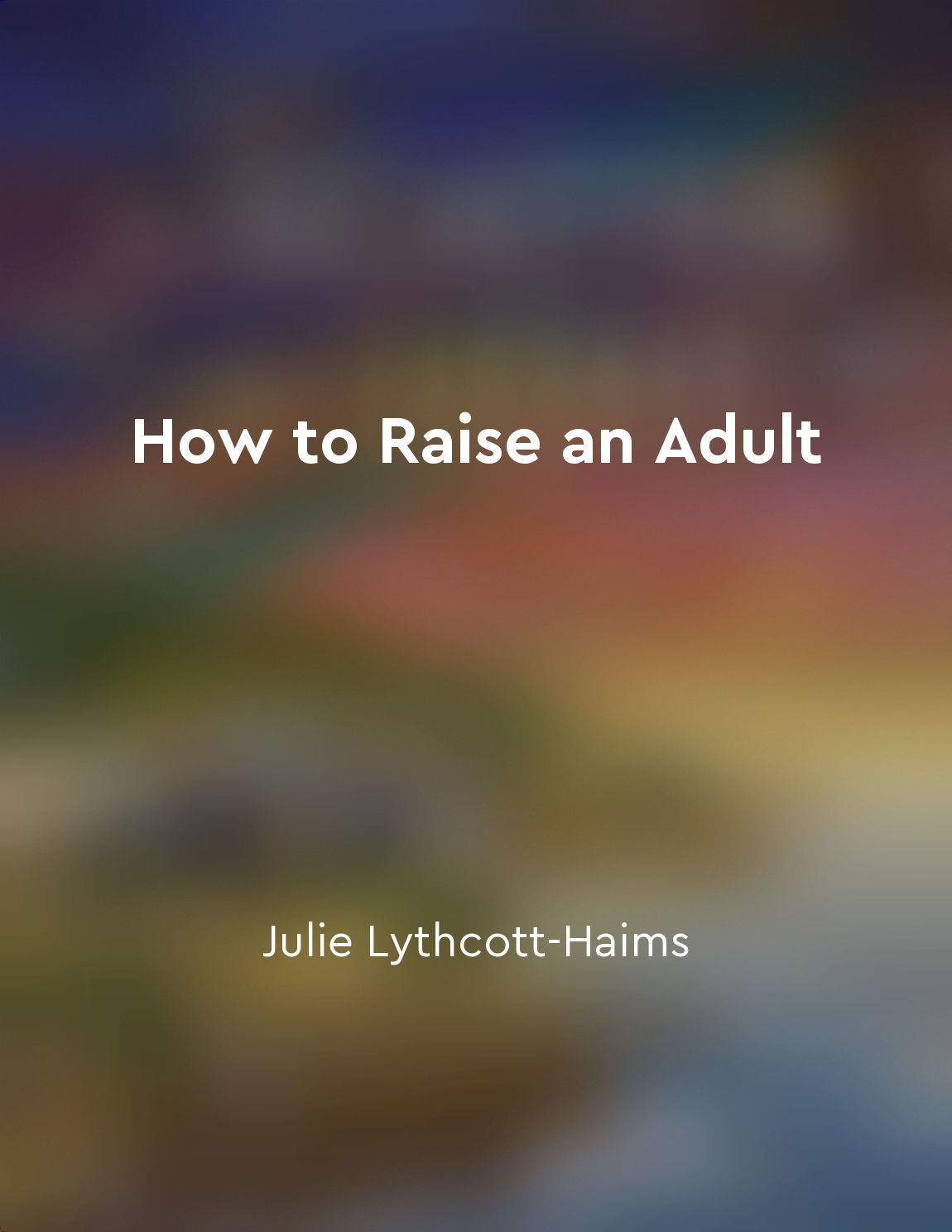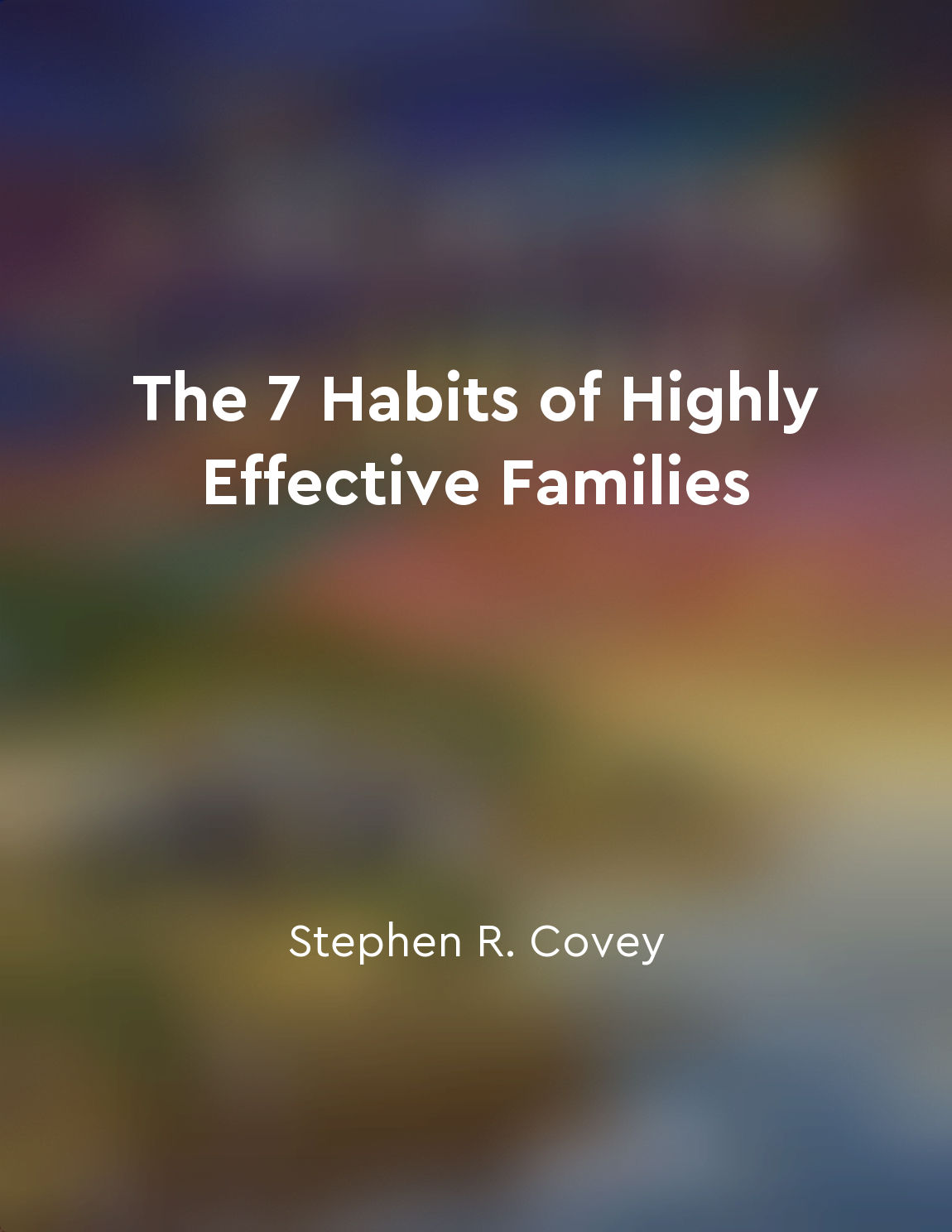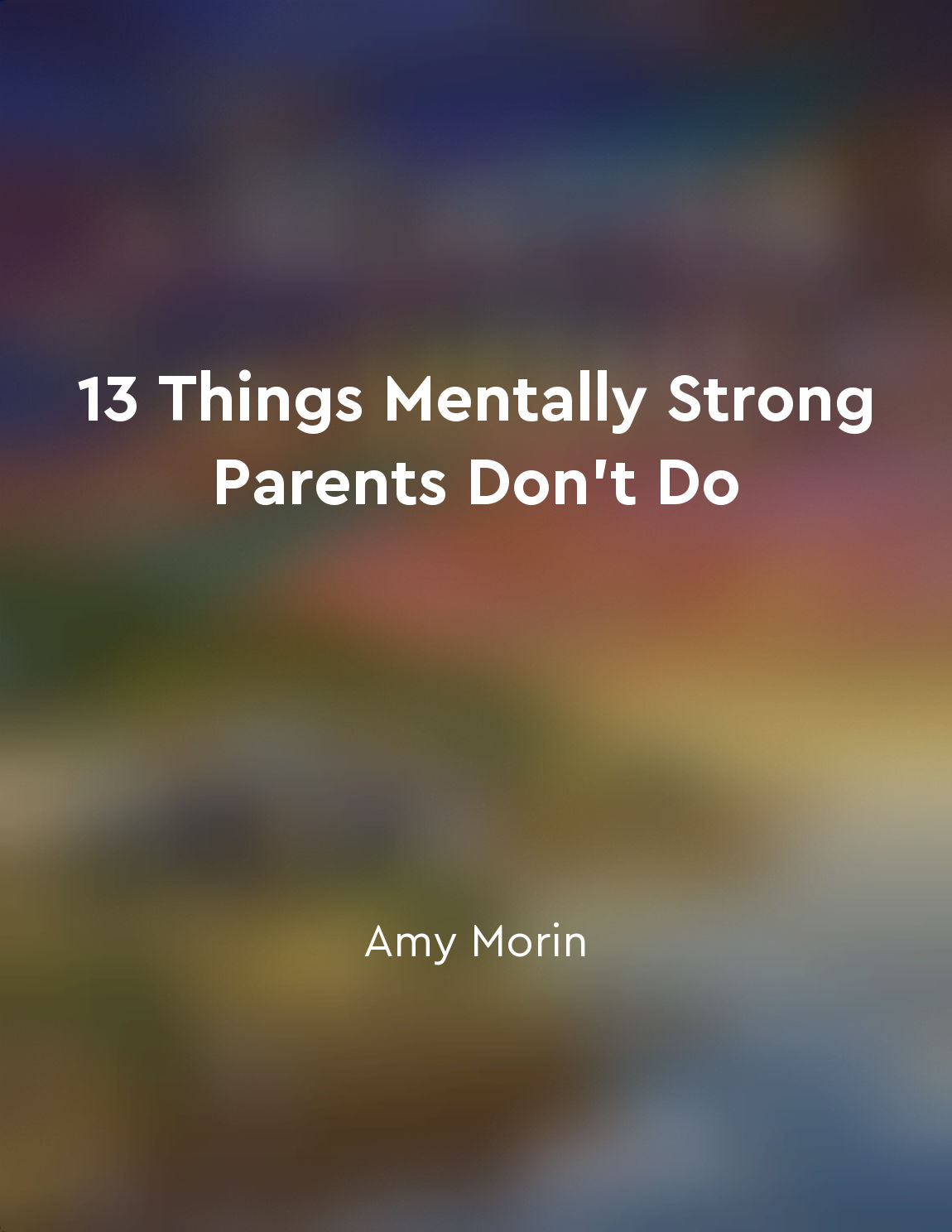Audio available in app
Stop Making Excuses for Your Child's Behavior from "summary" of 13 Things Mentally Strong Parents Don't Do by Amy Morin
When your child misbehaves, it's important to hold them accountable for their actions. Making excuses for their behavior only hinders their ability to learn from their mistakes. While it may be tempting to blame external factors or make justifications for your child's actions, doing so only sends the message that they are not responsible for their behavior. Excuses like "they're just tired" or "they had a rough day at school" may provide temporary relief, but they do not address the underlying issue. By avoiding excuses and facing the reality of the situation, you can help your child understand the consequences of their actions and take ownership of their behavior. When you stop making excuses for your child's behavior, you empower them to make better choices in the future. Instead of shielding them from the consequences of their actions, you allow them to experience the natural outcomes of their behavior. This helps them develop a sense of accountability and responsibility. It's important to remember that holding your child accountable does not mean punishing them excessively or being overly critical. Instead, it means setting clear expectations and boundaries, and helping your child understand the impact of their actions on themselves and others. By teaching your child to take responsibility for their behavior, you are equipping them with the skills they need to navigate the challenges of life. When you stop making excuses for your child's behavior, you also model healthy behavior for them. Children learn by example, and when they see you taking responsibility for your actions and facing challenges head-on, they are more likely to do the same. By being a positive role model, you can help your child develop the mental strength they need to thrive in the world.- By refraining from making excuses for your child's behavior, you can help them develop a strong sense of accountability and responsibility. This in turn can lead to more positive choices and better outcomes in the long run.
Similar Posts
Try to make one room in your home as beautiful as possible
As you go about your day-to-day life, take a moment to consider your living space. Is it cluttered and chaotic, or is it clean ...

Model healthy behaviors and attitudes for children to emulate
Children learn by observing the adults in their lives. They pay close attention to how we behave and the attitudes we demonstra...

Strengthen marital relationships through understanding
To strengthen marital relationships, it is essential to develop a deep level of understanding between partners. This understand...
Encourage creativity and expression
Encouraging creativity and expression in our children is essential for their growth and development. When we allow our children...
Do not transform your wife into a maid
Marriage is a partnership, a sacred union between two individuals who have chosen to walk the path of life together. It is a re...
Set your house in perfect order before you criticize the world
Before we criticize the world, we must first take a good, hard look at ourselves. It is so easy to point fingers at others and ...

Parents should communicate openly with their children
Open communication with your children is essential for building strong relationships. When parents are willing to be open and h...
Embracing challenges as opportunities for growth
When we face challenges, our first instinct may be to avoid or resist them. It's natural to feel overwhelmed or anxious when we...
Stay true to your values
Staying true to your values is a fundamental aspect of living a fulfilling and authentic life. Your values serve as a compass, ...

Be a source of strength and stability for your children
As a parent, it is crucial to understand the impact we have on our children. Our actions and words shape their world and influe...


